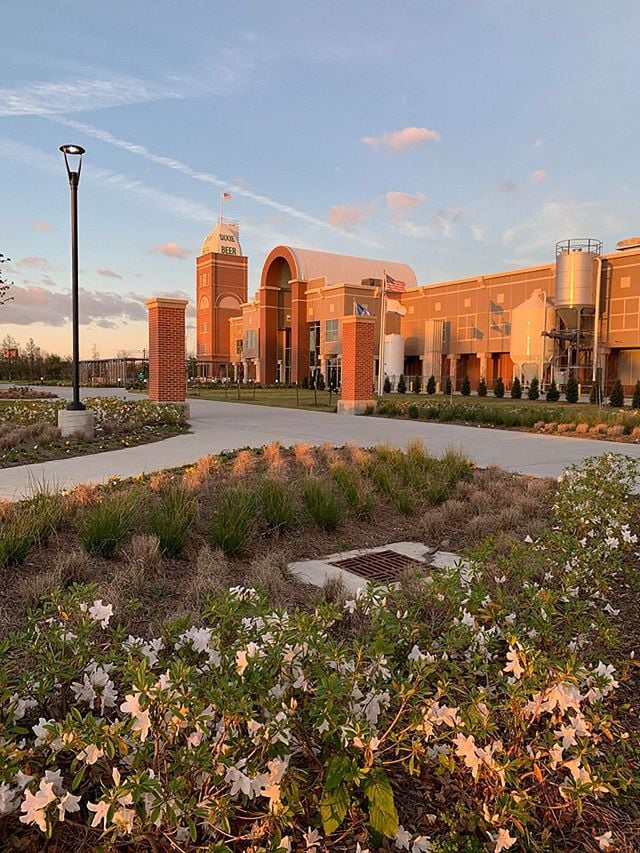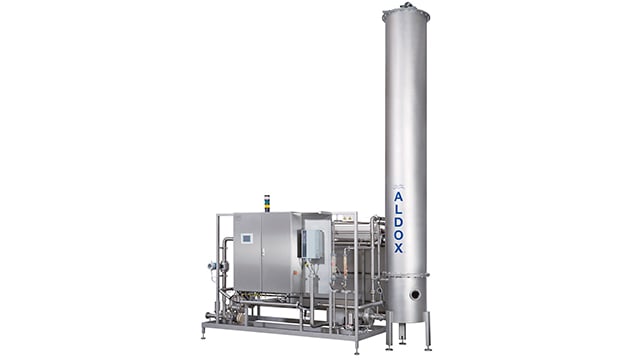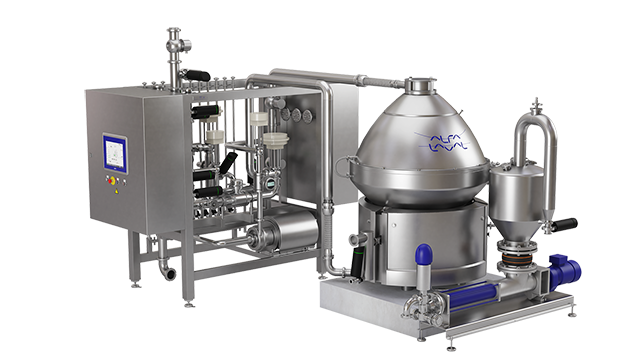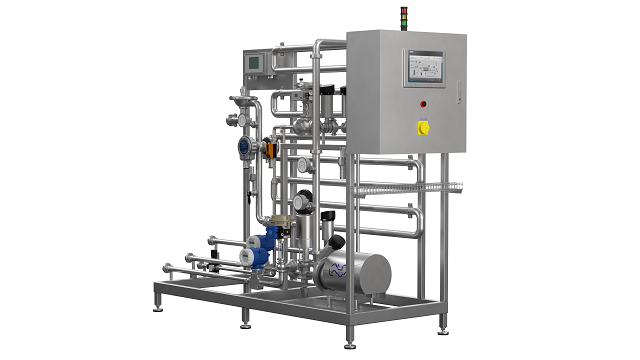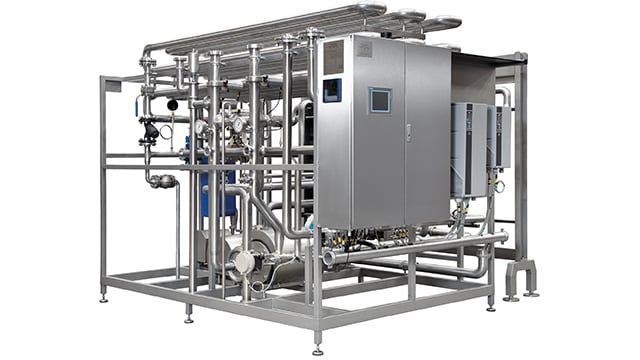World-class support to bring back a local hero: Dixie Brewing Company, New Orleans, Louisiana, USA
With origins dating back to 1907, the Dixie Brewing Company has a long reputation as an iconic New Orleans beer. For decades, their signature lager has kept generations of New Orleanians cool in the hot climate of the Gulf Coast American city. However, Dixie’s story took a dramatic turn when the original brewery was badly damaged in the wake of Hurricane Katrina in 2005, resulting in its closure. Production of Dixie’s beer was indefinitely moved out-of-state until 2017, when they once again came under local ownership and plans got underway for a new, modern Brewery to be built on the city’s east side. With an eye to rejuvenating a local brand and building a strong foundation for future growth, the company set about designing a facility based around state-of-the-art technologies. Alfa Laval was one supplier that Dixie brought into the design process early on, with the brewery ultimately deciding to invest in a wide range of Alfa Laval equipment to use throughout their production line.
DATA 2023-11-28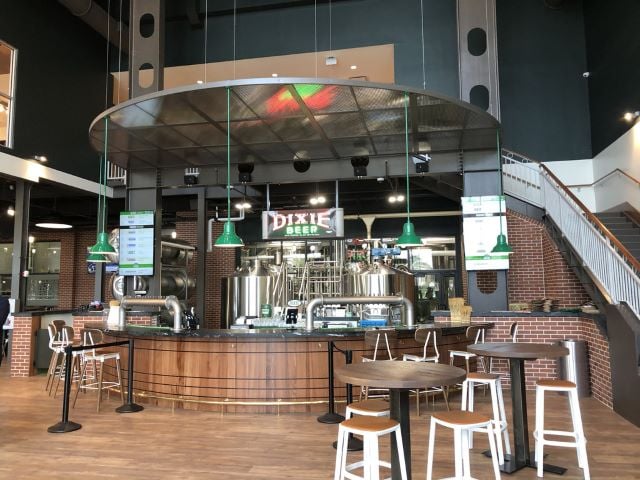
A focus on quality
“Our goal was to create a brewery that would allow us to produce the kind of volumes we need in-house with a focus on our lagers,” explains Jim Birch, General Manager at the new Dixie brewery. “But at the same time, we wanted to have a retail area in the front, with a small craft brewery where we can create innovation beers.”
Dixie’s flagship beer is a 4.6% ABV premium American lager. This, along with a 91-calorie super light lager, represents the bulk of their production. That means that when it comes to product quality, the brewery has little margin for error.
“Compared to a lot of other craft breweries out there, we’re working with a smoother, lighter beer, where you can’t hide flavours,” says Stephen Borutta, Dixie’s Director of Brewery Operations. “You have to be diligent about all your best practices: oxygen pickup, hitting all your set points, quality parameters throughout the whole process. When people go into the supermarket, they don’t see many craft lagers, so if they are going to take a risk to try our brand, we need to get it right. That is why we have to have high-quality equipment, with our people working as best as we can in order to meet those standards.”
Brewing a premium lager also means that Dixie’s primary competition comes from America’s major industrial beer brands, rather than other craft brewers. “The big players control 91% of the share in our market,” adds Birch. “We have to be perfect, otherwise the wholesalers are only going to give us one chance before they drop the product. Quality is number one for us.”
Choosing the right technologies
To make sure they could reliably meet that high level of quality, Dixie evaluated a number of suppliers for all of the different types of equipment needed in designing a brewery from scratch. After starting to build a relationship with Alfa Laval, however, Dixie quickly chose to rely on them for all key technologies within the cold block area.
The new brewery design included an Alfa Laval Flexitherm™ flash pasteurizer, an Alfa Laval Aldox™ water deaeration module, the Alfa Laval Carboblend™ for blending and carbonation, and an Alfa Laval Brew 250 bottom-fed hermetic polishing centrifuge. In order to further limit the number of suppliers involved in the project, Dixie also decided to use Alfa Laval for the rest of the loose components needed in their brewhouse and cold block, including their pumps, valves and heat exchangers.
The entire process line was specifically designed to ensure that Dixie could reliably achieve the same, consistent quality in each bottle that they produce. The Flexitherm unit, for example, ensures that they achieve accurate pasteurization for every batch.
That is one piece of equipment that is pretty structured in that it doesn’t let you do anything unless it’s exactly what needs to be done,” Borutta explains. "It makes it so we hit the quality parameters we need to hit, which is good. We always get everything right, in the right order, at the right step.”
For me, the Aldox has so far been the absolute most consistent piece of equipment,” adds brewer Troy Montrone. “I have had zero issues with the Aldox.”
Borutta concurs, noting that Dixie can produce deaerated water with dissolved oxygen levels at just 7 ppb with their Aldox, a unit that was actually designed for levels of 10 ppb. “7 ppb is world class, and having that functionality makes our lives a lot easier and keeps our quality a lot higher.”
Alfa Laval also worked closely with Dixie to design a process line that, in addition to ensuring product quality, would afford the brewery the necessary flexibility to adapt to changes in the future. With careful guidance from Alfa Laval’s industry experts, they were able to select modules that both support their actual capacity today as well as give them possibilities to expand capacity tomorrow.
Why choose a centrifuge?
One of the biggest decisions that the brewery faced was whether or not to include a centrifuge in their filtration process. They went back and forth throughout the design process, but ultimately decided to invest in a Brew 250 centrifuge due to a number of long-term benefits it could offer.
The first consideration, again, was one of quality. “It was something we insisted on, because our existing plate filter could only get us part way to our goals from a quality and brilliance perspective,” says Birch.
Because Dixie’s primary focus is on producing light, very crispy beers, it is critical to get it very clean during filtration, as any problems here can have a big impact on the flavour and shelf-life of the final product. Thanks to Alfa Laval’s unique bottom-fed, fully hermetic design, the Brew 250 ensures Dixie gets the lowest possible oxygen pickup, while simultaneously giving them the optimal clarification effect.
There was also an economic dimension in play, since choosing a centrifuge over filters would allow the brewery to significantly reduce product losses.
The yield increase means that, from a financial perspective, we are looking at a very short payback time with the centrifuge,” Birch continues.
Because the Brew 250 has a high resale value on the secondary market, Dixie could also be confident in their investment if they decided to upgrade to a larger capacity model as their volume demands increase in the future.
A close partnership with a single supplier
Beyond the advantages that Dixie saw with the individual pieces of equipment, they also saw great potential in relying on Alfa Laval as a partner for so many different elements of their process line. For starters, limiting the number of suppliers would make it easier for the brewery to manage spare parts and maintenance needs down the road. As the project got underway, however, they soon discovered a number of added benefits to the close supplier relationship.
I would say one of the biggest things in having only one supplier is the integration and communication between all the components,” says Birch. “When you have your flash pasteurizer, blending and carbonation unit, and water deaeration module all synching and communicating together, you know everything is reliable and will work continuously throughout the entire run. Just in terms of efficiency, the integration has saved who-knows-how-many hours when it comes to getting all the specs and the numbers correct.”
The system design has also made it much simpler for Dixie’s brewers to learn how to use the equipment. “There is a similar interface across all of the equipment,” says Montrone. “It’s easy to get a feeling of what you’re using regardless of which equipment you’re on. It’s like a recipe-based approach.” However, the real value of the partnership for Dixie has been the ability to take advantage of and learn from Alfa Laval’s years of expertise with brewery technologies.
The commissioning was world class,” Montrone continues. “The two individuals that Alfa Laval sent over were highly technical, highly skilled, highly advanced. They knew every piece of machinery backwards and forward.”
Not only did they have that technical knowledge, but they were also able to talk to us and understand our needs,” Borutta adds. “A lot of times, in my experience, you don’t get both. You don’t get people who are both technical and that can work with people and teach. Compared to other vendors I have worked with, it was very nice to have them around.”
With the new brewery now up and running, the Dixie team has their eyes set on the future. “Our goal is not just to bring Dixie back, but to improve the overall experience and bring something that New Orleans is proud to have back.” explains Borutta.
And without the equipment we have now, it would be very tough to meet our goals and do what we want to do with Dixie.”
To learn more about Alfa Laval’s comprehensive range of brewery technologies, visit here.

